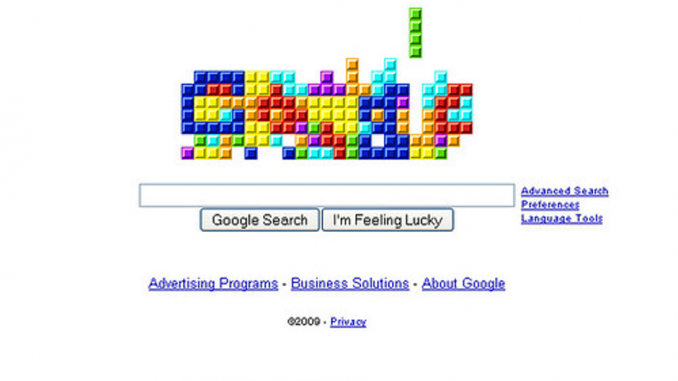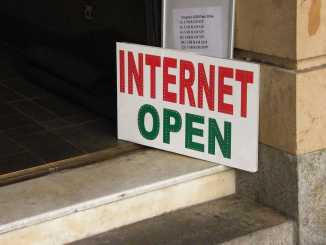
John Perry Barlow envisioned the Internet to be “a world that all may enter without privilege or prejudiced accorded by race, economy power, military force, or station of birth”, he believed that the Internet would act as a ‘no-judgement’ space where anyone, anywhere can express their beliefs (as cited in Noble, 2018, p. 61). However, the web does not reflect that as individuals are marked by gender, race or sexuality. This is apparent in Silicon Valley, as key figures of major tech companies consists of predominantly male; white and those in the upper middle class. Up to this day, white male supremacy is still visible while other social groups remain as outliers – creating structural inequality.
The United Nations (2020) defines structural inequality as a condition where one group is systematically assigned an unequal status by dominant social institutions, in comparison to others. A segregation can be established through these six factors, including: race; gender; social class; nationality; disability; sexuality; the Global North/South divide. For this essay, it will argue that the development of Internet is shaped by structural inequalities, surrounding the topic of race and gender, particularly how it favours the elite, how search engines degrades women and the objectifying of Black women that will also include physical implications that widens the gap between groups.
Google and Its Mind Games
When trying to research for something, most individuals would suggest to Google search – these thoughts are driven by automaticity. Through a study by Epstein and Robertson in 2013, researchers found that individuals are conditioned to use Google as their primary search engine as 75% of recorded participants believe it is a credible platform that allows users to access neutral information (Noble, 2018, p. 52-53; Epstein and Robertson, 2015, E4514). Or what Alex Halavais, former president of the Association of Internet Researchers, suggest ; Google acts like “an object of faith” (as cited in Noble, 2018, p. 25). Yet, Google fails to mention its hidden agenda – to profit out of these users; as they are just mere pawns who are manipulated to click on sponsored links featured in the first three pages that generates high profit.

Search engines like Google are thirsty to acquire profit (Fabos, 2005, p. 188) to the point where regulation practices are forced to choose between users and advertisers. As controversial content are deemed profitable, tech giants would rather lose its users, than have a decline in sales (Noble, 2018, p. 58). Both parties have reached a mutual agreement – search engines will affiliate certain key words to sponsored links, while businesses pay. Search engines do not operate through advertising algorithms, but instead they adopt information algorithms (Noble, 2018, p.38). Hence, only those affluent businesses are able to monopolize these platforms, or what Fabos has termed the practice of keyword advertising. This on its own builds a structural inequality that benefits the elites.
Women as Defined by Algorithms
Previously, content was moderated by manual labour however through technological advancements, algorithms are utilized. Gillespie (2014) defines algorithms as a coded system that is socially constructed through data that manages users’ online interaction. In regards to Google searches, algorithms help prioritize search results – selecting which site goes into the front page, that would generate more traffic. Keeping in mind commercial interests of tech giants, controversial topics like sexism are profitable. When typing in “women should”, a list of phrases are generated: stay at home, be slaves, be in the kitchen (Noble, 2018, p.15) – to mention some. Similarly to when the phrase “she invented” was logged, Google’s prior algorithm corrected that mistake suggesting “he invented” (Gillespie, 2014, p.190-191).

This hegemonic view stems from early library cataloguing systems and information organization that classifies women, and African Americans as “the other”. Factors that affect these algorithms to generate results like these are existing biases and tradition that are trained through historical data (Köchling and Wehner, 2020, p. 800). As discussed above, these algorithmic settings are driven by monetization rather than what is popular that deceives the public (Flew, 2019, p. 100; Noble, 2018, p.32). Barlow’s vision of the Internet as a democratic space turns out to be an advertising platform where dominant powers put forward their own agenda. This increases the gap among groups, specifically degrading women, alluding to structural inequalities.
Depiction of Black Women: Why Are We Not Moving Forward?
When adding a race factor into the equation, women of Black ethnicity are condoned to more oppression because the more factors added to your status, the more discriminated you are against the system. As it was previously discussed, the Internet is monetary-driven in which its target audience lies mainly in men. This idea was echoed by journalist and producer, John Berger, who voiced how men are the assumed “ ‘ideal’ spectator […] and the image of women is designed to flatter him” (1972, p.7). In other words, the Internet privileges men through pornification and the male gaze, which dehumanizes women. Following the example above in regards to search engines, when typing the phrase “black girls”, it objectifies them by their bodies that does not take into account the broader social, political and historical significance (Noble, 2018, p. 32).

A study by Don Heider, the dean of Loyola University of Chicago’s School of Communication, argues that women’s voices are not loud enough (as cited in Noble, 2018, p. 58). Or as Kerry Washington said during her speech upon receiving the GLAAD Vanguard Award, “Having your story told as a woman, as a person of colour, as a lesbian, or as a trans person or as any member of any disenfranchised community is sadly often still a radical idea.”
These ideas stem back to colonization, where Western dominant powers took over much of the world. Marginalized groups were underrepresented, and women in particular were labelled as incompetent, and dependent on men. This idea still exists today with the spread of technology worldwide, that mirrors Barbrook and Cameron’s 1996 Californian ideology. It is utilized by Silicon Valley to govern the Internet which aims to blend technological determinism, utopianism and libertarianism (Lusoli and Turner, 2021, p. 241; Popiel, 2018, p. 573). Thus, the Internet can be described as a reflection of old media traditions, meaning that prior structural inequalities are still prominent today and has not reduced these segregations.
Effects of Physical Factors – Lack of Access
Society has positioned women to prioritize domestic responsibilities, instead of pursuing a career. This leads to women having less proper education that creates these notions that they lack connectivity through the lack of access to mobile phones, merely because they simply do not need one as a landline phone has already been attached into their homes. This is evident as statistics present 50% of women are less likely to be connected than men in the same age group. Consistent gaps between gender in income and education seem to contribute to the gender gap in ICT access and mobile ownership (Faith, 2018, p. 67); suggesting, again, how the Internet is a mirror of old media traditions, and history has remained prevalent. Structural inequalities have been grounded into society for a long period of time that this divide has never reduced the gap in the Internet.

Dominant power of the elites, the stigmatization of women as domestic ‘servants’ and the objectifying of Black women by their bodies are a few of the many structural inequalities that users have to deal with, and with time, it is somehow already accepted as a norm. This is due to historical practices such as women’s lack of connectivity; in addition to prior algorithms that cannot be altered, as they compromise of previous, collective data; and how society is wired to a fixed mindset. Consequently, the vision of the Internet as a democratic space where all individuals are viewed as equals remain a fantasy. Overall, structural inequalities do shape the Internet to what it is today but in regards to the increasing or reducing of representation, it will either remain stagnant or increase; regardless of constant content moderation.
Creative Commons License: <a rel=”license” href=”http://creativecommons.org/licenses/by-nc/4.0/”><img alt=”Creative Commons License” style=”border-width:0″ src=”https://i.creativecommons.org/l/by-nc/4.0/88×31.png” /></a><br />This work is licensed under a <a rel=”license” href=”http://creativecommons.org/licenses/by-nc/4.0/”>Creative Commons Attribution-NonCommercial 4.0 International License</a>.
Reference List
Berger, J. (1972). Ways of Seeing. In J. Berger (Ed.), Ways of Seeing (pp. 1-14). Penguin Books.
Chauvinisto, E. (2010, March 1). Women invented?? THINK AGAIN BITCH. Blogspot. http://chauvinisto.blogspot.com/2010/03/women-invented-think-again-bitch.html?showComment=1295679303975#c7425383858438741995&utm_source=twitterfeed&utm_medium=twitter
Epstein, R., & Robertson, R. E. (2015). The search engine manipulation effect (SEME) and its possible impact on the outcomes of elections. American Institute for Behavioral Research and Technology, 112 (33), E4512-E4521. https://doi.org/10.1073/pnas.1419828112
Fabos, B. (2005). The Commercial Search Engine Industry and Alternatives to the Oligopoly.
Faith, B. (2018). Maintenance Affordances and Structural Inequalities: Mobile Phone Use by Low-Income Women in the United Kingdom. Information Technologies & International Development (Special Section), 14, 66-80.
Flew, T. (2019). Guarding the gatekeepers: Trust, truth and digital platforms. Griffith Review, 64, 94-103.
Gillespie, T. (2014). The Relevance of Algorithms. Chapter 3 in T. Gillespie, P. J. Boczkowski and K. A. Foot (Eds.) Media Technologies: Essays on Communication, Materiality, and Society (pp. 176-193). MIT Press.
GLAAD. (2015, March 22). Kerry Washington Accepts the Vanguard Award at the #GLAADAWARDS. [Video]. YouTube. https://www.youtube.com/watch?v=ruv8As-_CMg
Köchling, A., & Wehner, M. C. (2020). Discriminated by an algorithm: a systematic review of discrimination and fairness by algorithmic decision-making in the context of HR recruitment and HR development. Business Research, 13 (3), 795-848.
Lusoli, A., & Turner, F. (2021). “It’s an Ongoing Bromance”: Counterculture and Cyberculture in Silicon Valley – An Interview with Fred Turner. Journal of Management Inquiry 2021, 30 (2), 235-242. https://doi.org/10.1177/1056492620941075
Noble, S. U. (2018). A Society, Searching. In S. U. Noble (Ed.), Algorithms of Oppression: How Search Engines Reinforce Racism (pp. 15-63). New York: New York University.
Popiel, P. (2018). The Tech Lobby: Tracing the Contours of New Media Elite Lobbying Power. Communication, Culture and Critique, 11 (4), 566-585. https://doi-org.ezproxy.library.sydney.edu.au/10.1093/ccc/tcy027
United Nations Economic and Social Commission for Western Asian. (2020). structural inequalities. https://archive.unescwa.org/structural-inequalities


